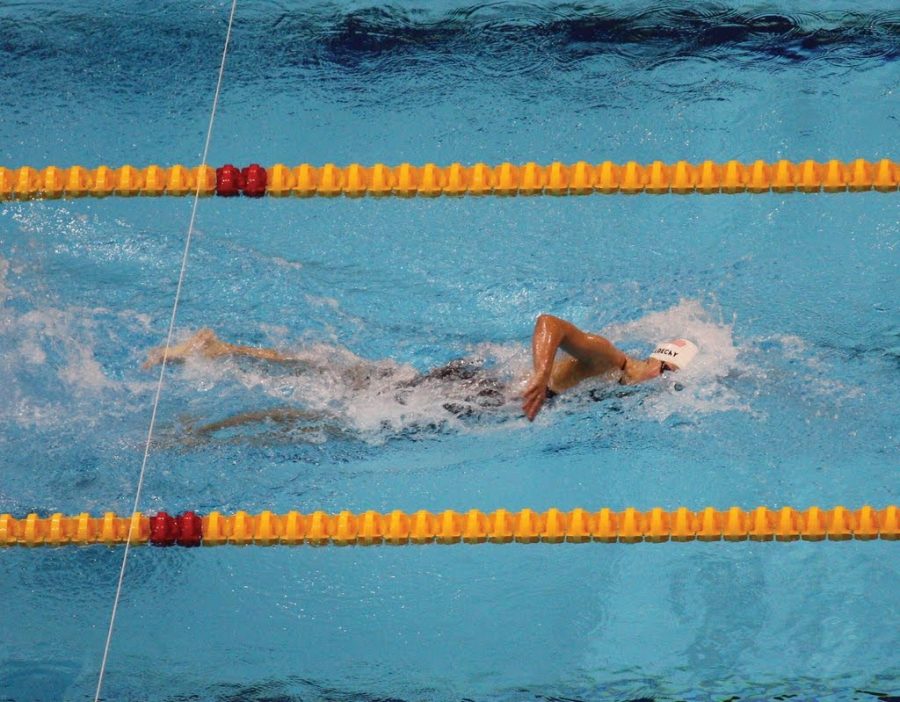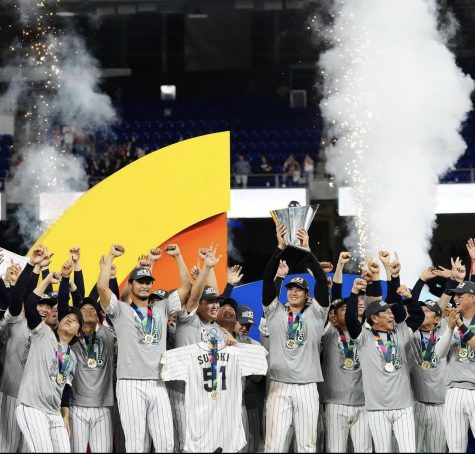In the Olympics, women just can’t lose
Photo courtesy of Creative Commons
Katie Ledecky swims at the London 2012 Aquatics Centre 1.
The first modern Olympic Games was held on April 6, 1896, with a thousand years since the last Olympiad on the Peloponnese Peninsula in the fourth century A.D. Only four years later, women began competing in the modern Olympic Games; in 1900, out of 997 athletes, 22 women competed in tennis, sailing, croquet, equestrianism and golf.
In the most recent summer Olympics, over 5400 women competed, or 49% of total Olympians. Despite over a century of womens’ participation in the Olympics, only recently have many sports been added that their male counterparts had been competing in for decades. Women’s ski jumping was added in 2014, while men’s has been included since 1924. Title IX can be credited for growth in women’s athletics as this federal law bars gender discrimination in schools and colleges, stimulating a growth in women’s athletic involvement.
The U.S women led the medal count with 66 medals, making up 58.4% of the American total, aiding the U.S.’s dominance to finish first in the medal count.
In general, male athletes have faced less scrutiny by the American media than women. This is evident in the contrast between American headlines for female athletes not winning gold versus male athletes not even placing. For example, swimmer Katie Ledecky’s silver medal finish against Adrianne Titmus of Australia in the 400-meter freestyle was lauded as an immense moment of defeat, with the New York Times headlining “Katie Ledecky Feels the Sting of a First Olympic Loss.”
After her silver-medal sprint, Ledecky began explaining the race and even credited Titmus for a phenomenal race, “I could see her, and I knew she wasn’t fading… I had a fast last 50. She just had a really fast last 50.” The LA Times said that Ledecky had to “settle for Silver” as if being the most decorated woman in swimming history and snagging a silver medal was a moment of immense let down. Of course, losing her first Olympic race is news, but it is not a loss to be ranked among the best in the world.
Compare this to the NPR article on the American men’s baseball team losing to Japan in the gold medal round: “U.S. Baseball Team Loses To Japan, But It Still Has A Tight Path To Gold Medal Game.”
Female athletes deserve better than to have their phenomenal athleticism downgraded to a “settle”while men still have potential. A woman’s athleticism should not be based on her gender, and a man’s, his ability.

Lindsay Giovannone is a senior majoring in history and minoring in criminal justice. She has been part of the paper since she was a freshman and has previously...











